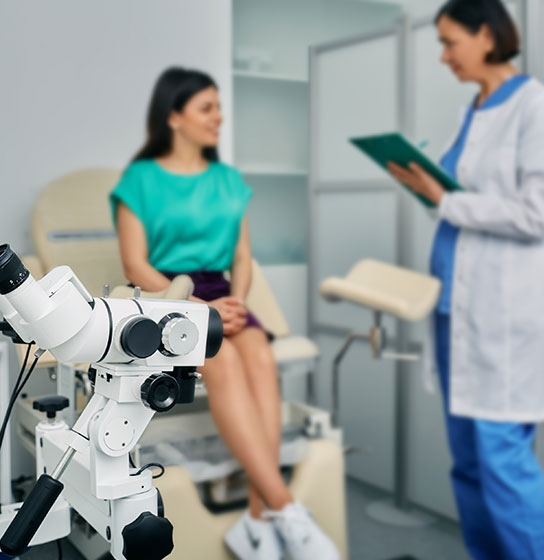Proposed Cervical Cancer Screening Update Endorses Self-Collection Primary HPV Testing
December 13, 2024

Key Takeaways:
- The United States Preventive Services Task Force (USPSTF) is a panel of experts who develop screening guidelines that providers, insurers, and consumers follow. This week they posted their recommended updates to the cervical cancer screening guidelines.
- The draft guidelines state for women 30-65 years “self-collected or clinician-collected HPV testing alone (primary HPV testing) every 5 years provides the optimal balance of benefits and harms. Moving co-test and Pap smear to alternative options.”
- They also state that evidence shows self-collection has similar accuracy to clinician-collection and that at-home self-collection options have shown increased rates of screening.
This week, the U.S. moved one step closer to making at-home self-collection cervical cancer screening a reality. The United States Preventive Services Task Force (USPSTF), which is a panel of experts who develop the medical guidelines that providers, insurers, and consumers follow, announced a recommended update to the cervical cancer screening guidelines.
The update includes two important changes from the previous published guidelines:
- Primary HPV testing is now the recommended screening test, moving co-test and Pap smear to alternative options:
From USPSTF proposal: For women 30-65 years, self-collected or clinician-collected HPV testing alone (primary HPV testing) every 5 years provides the optimal balance of benefits and harms. - Self-collection was added to the guidelines and stated to have similar accuracy to clinician-collected tests:
From USPSTF proposal: Self-collection of HPV tests for screening has similar accuracy to clinician-collected tests and is associated with increased screening in underscreened individuals and in historically underscreened populations. The accuracy does not appear to show a difference between home or clinic setting for self-collection. However, most of the evidence for increased rates of screening was for home self-collection of HPV.
There were no recommended changes to the screening age and screening intervals. For more details, see the current screening guidelines.
These recommended updates are currently under review and are open for public comment. Once they are finalized, they will update the 2018 USPSTF screening guidelines. You can see the draft cervical cancer screening recommendation on the USPSTF website.
How this update supports at-home screening
At Teal Health, we are thrilled to see the USPSTF make these recommended updates to the cervical cancer screening guidelines, acknowledging the accuracy of self-collected samples and following the American Cancer Society’s lead in officially endorsing Primary HPV testing as the recommended screening test. Both of these updates align with the work we have been doing to develop, test, and validate our at-home self-collection device for cervical cancer screening.
The Pap smear was revolutionary for its time, but with the overwhelming evidence that HPV causes nearly all cervical cancers, HPV testing is shown to be the most effective screening. Through Primary HPV screening, we can introduce a more comfortable and private at-home self-collection option like the Teal WandTM, unlocking access to this critical screening. These updated guidelines will ensure we can get more people screened for cervical cancer - using a preferred method that women want.
Teal Health, through the FDA Breakthrough Device Designation is on the fast track to be the first FDA authorized at-home self-collection kit for Primary HPV testing. We were granted this designation based on the ability of the Teal Wand at-home collection to address a public health need. The USPSTF’s inclusion of this language is another sign of the importance of offering more accessible options to women in the U.S. We are excited by the progress, and honored to play our role in making it a reality in the near term. Our at-home collection kit is currently under review by the FDA.
*May 2025 Update: The Teal Wand is FDA-authorized. Check medical eligibility to get started and see if Teal is right for you. If we are not available in your state just yet, you will be placed on our waitlist and we will notify you when we are available in your state.
Cervical cancer screening guidelines are developed by organizations like the USPSTF as well as other leading organizations, such as the American Cancer Society (ACS), American Society for Colposcopy and Cervical Pathology (ASCCP), and the American College of Obstetricians and Gynecologists.
Skip the stirrups
To get early access, enter your email below.
$99 with insurance
$249 without insurance (reduced from $499)


🔒 100% Private & Secure • No Hidden Costs

.png)






